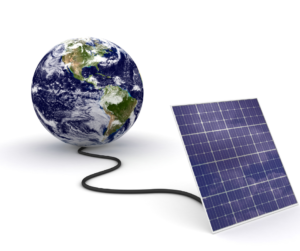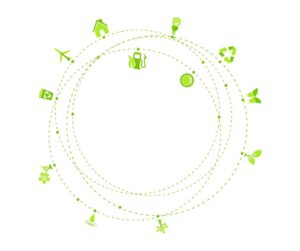Solar Energy as an Alternative Source of Energy
Solar energy is one of the most popular topics when it comes to alternative sources of energy. It’s renewable,
it’s sustainable, and it’s friendly to the environment.
For a long time, solar energy has been around, but it’s only recently that it has been investigated as a possible source of energy for the home.
Solar power is one of the most widely available forms of renewable energy on our planet. It is a source of
renewable energy that is capable of delivering the amount of power required to meet the requirements of your
home.
Because it has the potential to be of significant benefit to both people and the environment, its popularity in
modern times is also continually on the rise. Here, we will explore solar energy as an alternative source of energy. We will discuss the pros and cons of solar
energy, as well as how it can be used in the home.
What is Solar Energy?
Solar energy is radiant light and heat from the Sun that is harnessed using a range of ever-evolving
technologies such as solar heating, photovoltaics, solar thermal electricity, solar architecture, and artificial
photosynthesis
Solar power is a renewable energy resource that can be used to generate electricity or provide heat. It has the
potential to help meet our future energy needs in a sustainable way and can offer significant environmental
and economic benefits.
Despite its vast potential, solar power currently accounts for 3.6% of global electricity generation (IEA, 2018) In
order to increase the deployment of solar power and realize its full potential, it is important to understand how
it works and what the key barriers are to its wider adoption.
How Solar Energy Works

Globe and solar panel
Solar energy is one of the most popular forms of alternative energy and for good reason. Solar energy is a
clean and renewable resource that can be used to power homes and businesses. Best of all, solar energy is
free once you have installed the necessary equipment.
Panels work by converting sunlight into electricity. The sun’s photons strike the solar panel and are
absorbed by the semiconductor material. This process creates an electric field across the layers of the solar
cell, which causes electrons to flow from the negative to the positive side of the cell. The flow of electrons
generates an electrical current that can be used to power appliances and lights.
Solar panels are usually made from silicon, a strong, heat-resistant material that is found in sand. When
combined with other materials such as cadmium telluride or copper indium selenide, silicon can create a
photovoltaic effect, meaning it can convert sunlight into electricity.
The Pros and Cons of Solar Energy
Solar energy is a type of renewable energy that comes from the sun. Solar panels are used to convert
sunlight into electricity. Solar energy is a clean and environmentally friendly source of energy.
There are several pros and cons associated with solar energy:
Pros
- Solar energy is a renewable resource, so it will never run out
- Solar power is emissions-free, so it does not contribute to air pollution or global warming.
- Solar panels have a very long lifespan and require very little maintenance.
- Once you have installed solar panels, the energy they produce is free.
- The initial cost of installing solar panels has come down significantly in recent years.
Cons:
- Solar power only works when the sun is shining, so it may not be suitable for all locations.
- Solar panels require a large amount of space in order to generate significant amounts of power.
Overall, solar energy is a great alternative source of energy that has many environmental benefits. If you
have the space and resources available, solar power can be a great option for your home or business.
Benefits of Solar Energy
Solar energy is one of the most promising alternative sources of energy. It is renewable, sustainable, and
environmentally friendly. Solar energy can be used to generate electricity, heat water or air, and power
appliances and vehicles.
There are many benefits of solar energy. Solar energy is a clean and renewable source of energy that does not
produce greenhouse gases or other pollutants. Solar panels have a very small environmental impact when
compared to other forms of power generation such as coal-fired power plants
Solar energy is also a very reliable source of power. Solar panels can capture sunlight even on cloudy days, and
they can continue to generate electricity for years with little maintenance required.
Solar energy is also becoming more affordable as technology improves and costs continue to decline. The initial
investment in solar panels can be offset by the long-term savings on your electric bill, and there are often rebates
and tax credits available to encourage people to switch to solar power.
If you are considering switching to solar power, it is important to do your research and find out if it is the right choice for you
It is a Free Source of Energy
The sun provides the greatest amount of unconstrained, free energy that can be harvested anywhere on this
globe. It is able to generate enough power in just one minute to meet the demand for electricity throughout the
entire world for an entire year
Solar energy, along with other renewable resources such as biomass, wind, and water, is one type of alternative
energy resource that derives from naturally occurring phenomena. It is able to supply your home with clean
electricity and assist in making your home more energy efficient.
As soon as you switch your photovoltaic cells on, you can begin to reap the financial benefits of your investment.
It is Good for the Environment

Environmental diagram
One of the most significant advantages of utilizing solar energy for your home is that it may supply a source of
power that is both clean and environmentally friendly.
Utilizing solar electricity is a fantastic approach to aid in the reduction of your carbon footprint, which is
something that is destructive to the environment. Additionally, it does not contribute to the emission of any
greenhouse gases or other hazardous compounds.
Solar power is a type of renewable energy resource that may operate entirely on its own. Adding solar panels
to your home’s roof is an environmentally friendly and risk-free method to contribute to a more sustainable
future.
Solar energy is another fantastic form of alternative energy that is capable of effectively powering your home
and contributing to the preservation of the environment in a manner that is both cost-effective and efficient.
Solar Energy as an Alternative to Fossil Fuels
As the world becomes increasingly aware of the environmental damage caused by fossil fuels, solar energy is
becoming a more popular alternative. Solar energy is a renewable resource that can be used to generate
electricity and heat, making it a versatile option for powering homes and businesses.
There are a number of reasons why solar energy is a preferable alternative to fossil fuels. For one, solar power
does not produce emissions that contribute to air pollution and climate change.
Additionally, solar panels can be installed on rooftops, making use of unused space and reducing the need for
new power plants. Solar energy is also cost-effective, with the price of solar panels dropping dramatically in
recent years.
Solar Energy in the Future
As the world looks for ways to become more energy efficient and reduce its reliance on fossil fuels, solar
energy is increasingly seen as a viable alternative. Solar energy is a clean and renewable resource that can be
used to generate electricity or heat.
There are many potential applications for solar energy in the future. For example, solar panels could be used
to power homes and businesses, or to provide energy for electric vehicles. Solar thermal systems could be
used to generate hot water or steam for industrial processes. And large-scale solar farms could provide
electricity for entire communities.
Solar energy is likely to play an important role in the future of energy production. With continued research and
development, it is set to become a major source of renewable energy around the world.
Conclusion
Solar energy is a great alternative source of energy that has many benefits. It is renewable, sustainable, and
environmentally friendly.
Solar energy can be used to power homes and businesses, and it can also be used to generate electricity.
There are many different types of solar panels available on the market, so you can find the right type of panel
for your needs.
If you are interested in switching to solar energy, do some research to find out more about the benefits and
the different types of solar panels available.